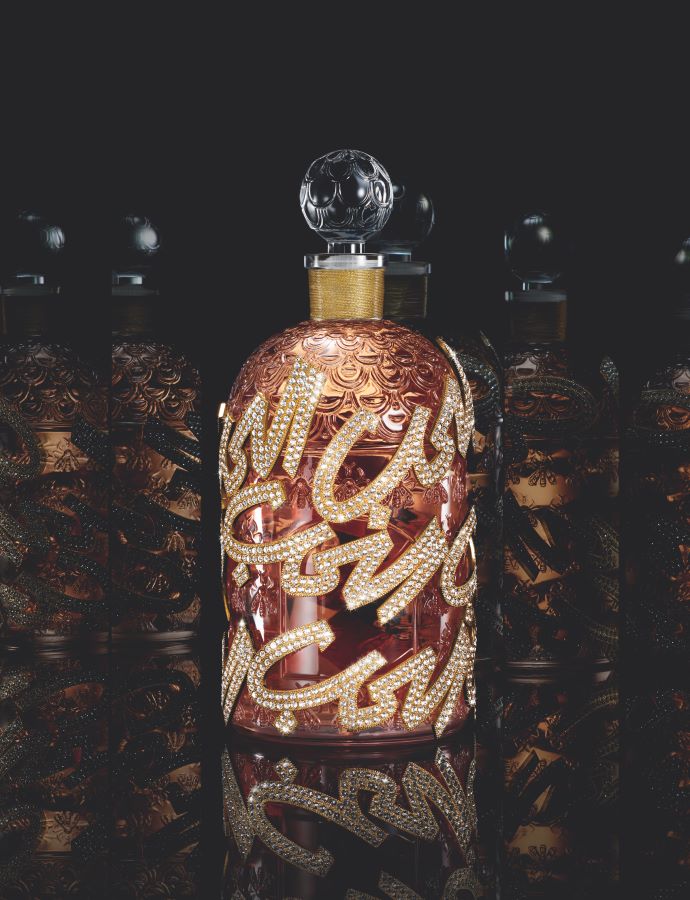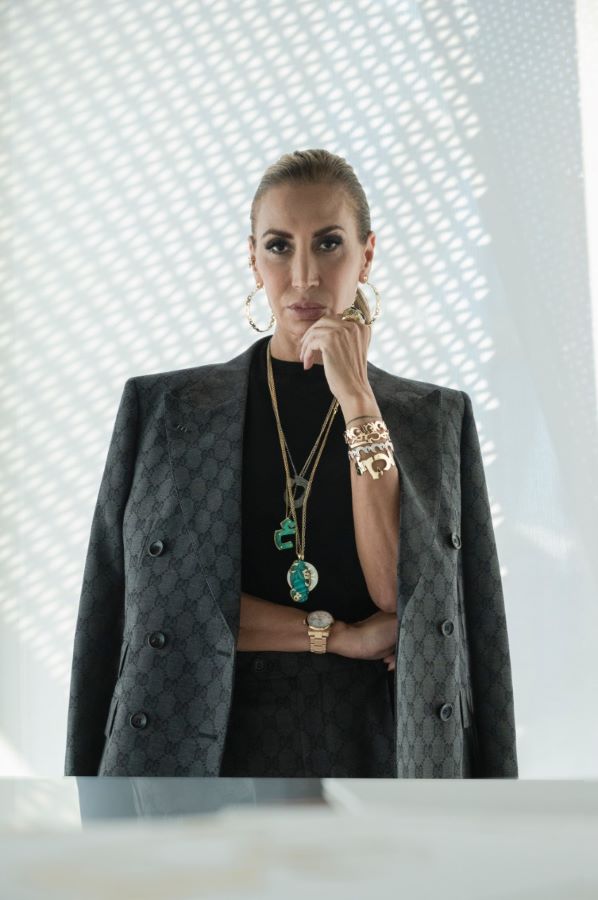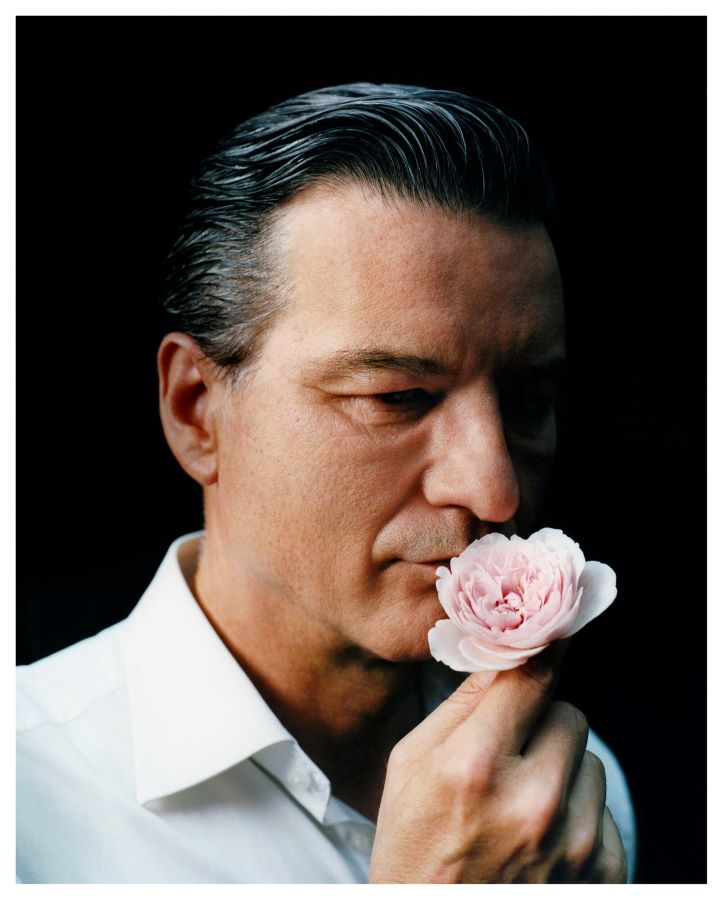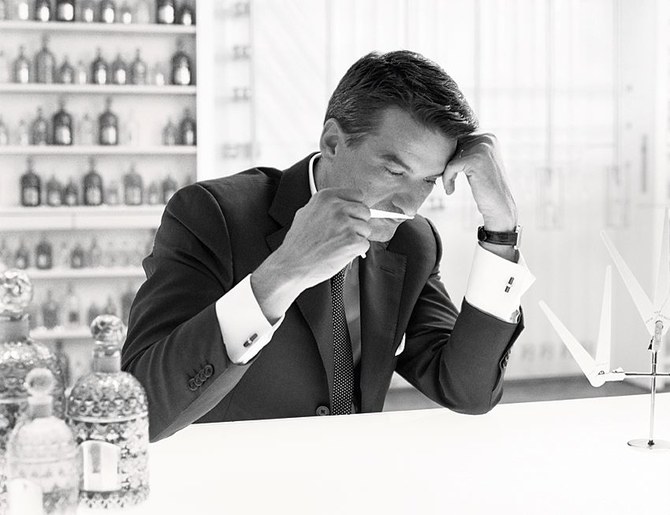DUBAI: Guerlain’s master perfumer Thierry Wasser is no ordinary man.
The nose behind some of the maison’s most iconic fragrances, Wasser joined Guerlain in 2008 to fill the shoes of his predecessor, Jean-Paul Guerlain. This made him the fifth-ever perfumer in the house’s history and its first non-family name.
Wasser was recently in Dubai to reveal Guerlain's latest bee bottle, designed in collaboration with Lebanese designer Nadine Kanso, and he spoke to Arab News about his role at Guerlain and how the Gulf Cooperation Council region continues to inspire him.
The maison’s latest perfume, Reve d’Amour, housed in a bottle designed by Kanso, is one Wasser described as a festival of white flowers.
He said: “I also wanted something linked to Nadine, which is the cedar wood – it’s the emblem of Lebanon.”
The Middle East, specifically the GCC region, is important to Wasser. He noted an encounter with an Emirati man 15 years ago, which led to the creation of Santal Royal in a bee bottle designed by artist Tarek Benaoum.
“I created Santal Royal after a conversation with an older gentleman who said, ‘you European people don’t know how to design a big wow perfume.’ And he explained to me what a fragrance means for an Emirati.”

Guerlain's latest bee bottle, designed in collaboration with Lebanese designer Nadine Kanso. (Supplied)
From that conversation, Wasser learned how some Emirati men rub rose oil on their nose and beard before greeting someone.
“GCC, for me, isn’t only about business but also a source of inspiration. The significance of fragrance here is profound compared to Europe and America,” Wasser added.
He pointed out that strength, diffusion, and long-lastingness were very important in the region.
“In Europe, you put perfume on your skin. Here, very often, it’s on the clothes. And if you learn about the longevity of the composition on clothes versus on the skin, you write your formula rather differently,” he said.
Wasser became a perfumer by chance and revealed that his initial trade was medicinal herbs.
“I got kicked out of school when I was 15 because I found it boring and got a diploma in botany instead,” he added.

Lebanese designer Nadine Kanso. (Supplied)
During the 1970s, the Swiss national joined Givaudan Perfumery School in Geneva, where he discovered he had a knack for scents.
He said: “The head of the school was struck by my ability to describe scents using words – that was my strong point.”
After graduating, he worked in Paris and New York before his appointment at Guerlain. His experience at the maison has been unique compared to his roles at other companies.
“Guerlain is very specific compared to its competition. Since 1828, they manufacture everything they sell – there are no frozen pizzas in the kitchen.”

Thierry Wasser became a perfumer by chance and revealed that his initial trade was medicinal herbs. (Supplied)
He learned the art of manufacturing and sourcing from and with Jean-Paul Guerlain.
“Previously, I was only designing fragrances. With Guerlain, everything starts from scratch. I spend 35 percent of my time sourcing flowers in the fields,” he added.
From the Indian state of Tamil Nadu comes jasmine, vetiver, and mimosa while pepper is sourced from Madagascar. With a vertically integrated supply chain, Wasser is often knee-deep in flower fields and knows his suppliers well.
He said: “Jean-Paul Guerlain was sourcing the bergamot from the south of Italy from the same family, which is now in its third generation.
“Fragrance is incarnated by the people who pick the flowers and transform them into the oil. So, when I smell a rose from Bulgaria, it has a meaning to me because I know the pickers and transformers. There is an emotional charge to all those different ingredients, and that’s why I think our fragrances are alive,” Wasser added.











